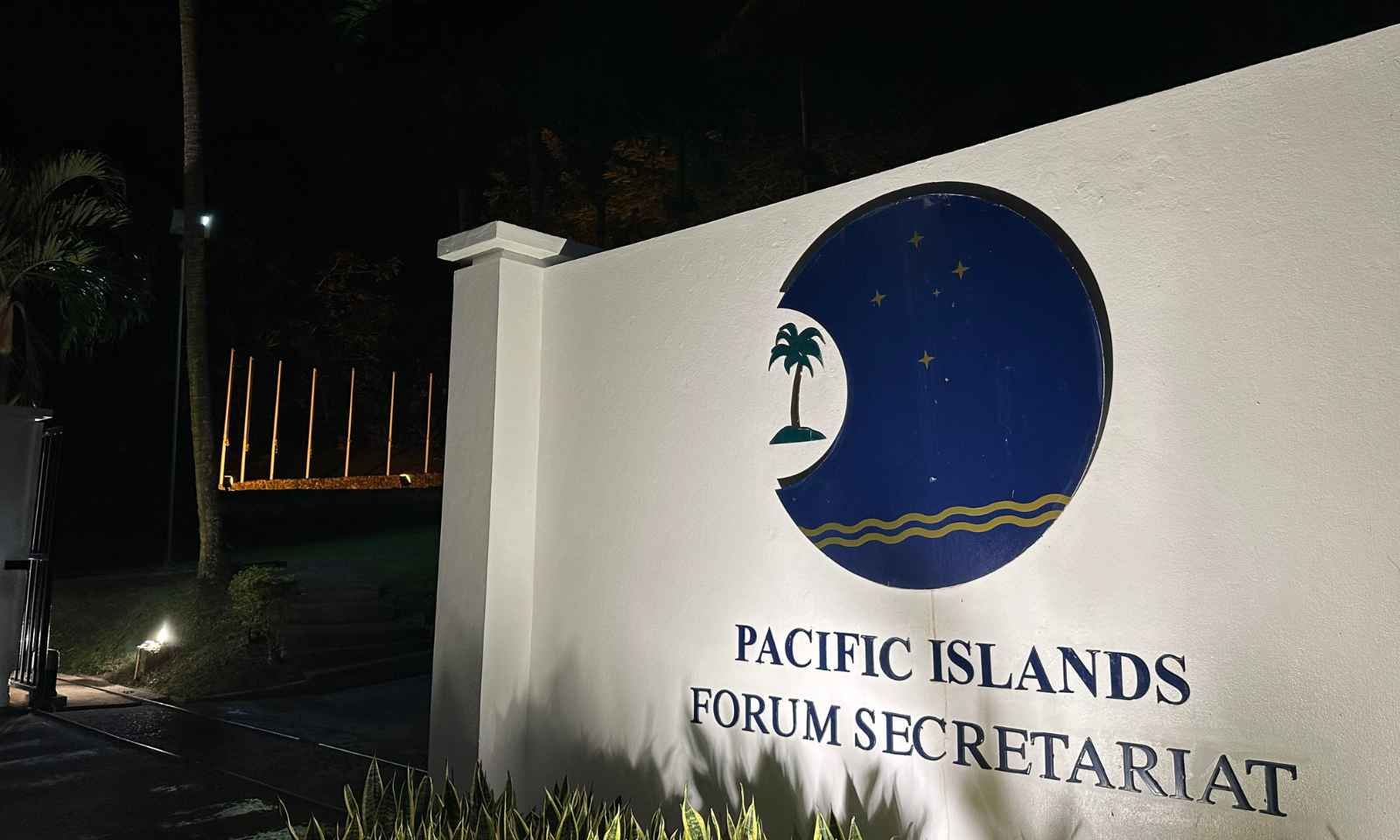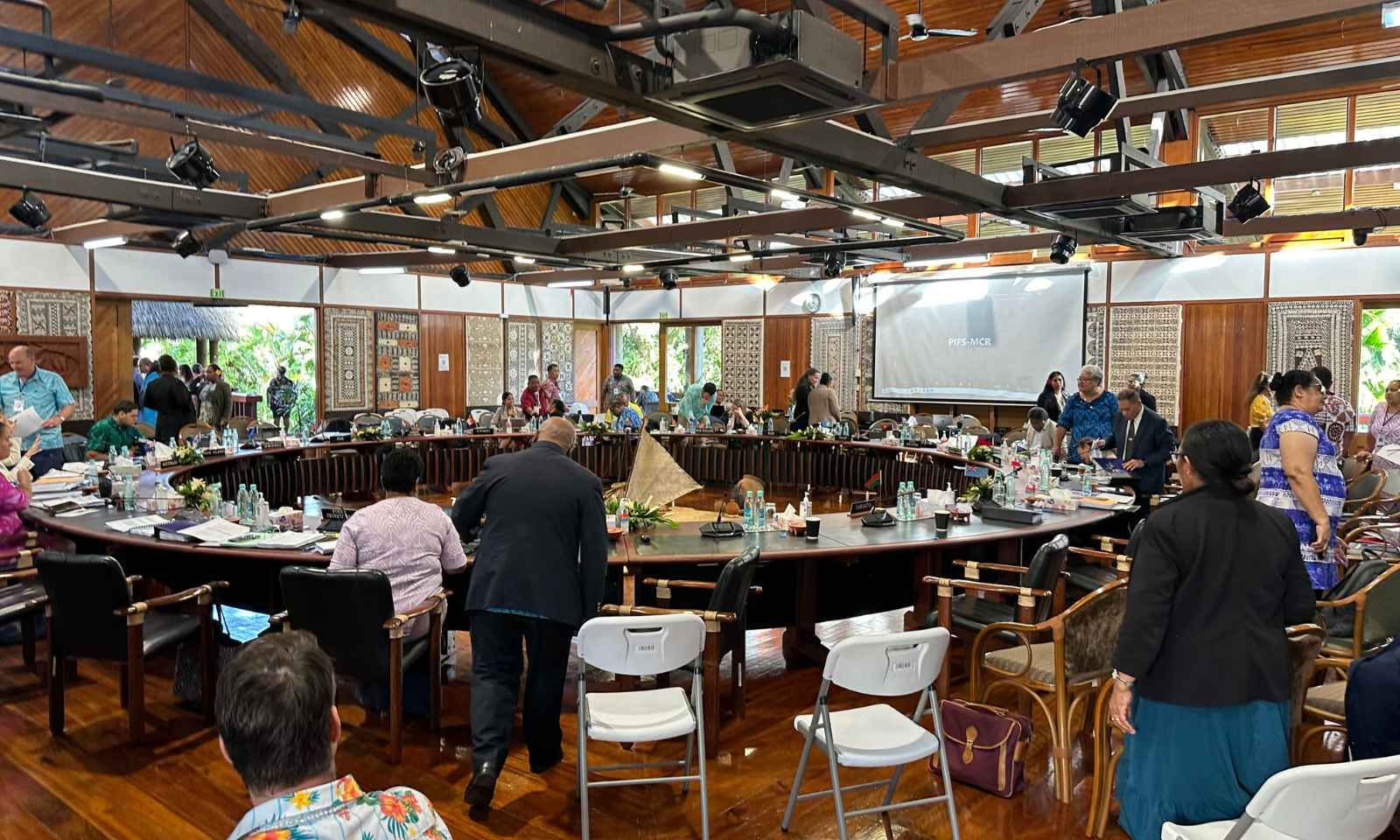

Sione Tekiteki is now a senior law lecturer at the Auckland University for Technology.
Photo/Supplied
Pacific Islands Forum: Expert on why region's ‘Mini-UN’ matters
Sione Tekiteki explains PIF's origins, role, and why it must adapt fast amid climate threats, deep sea mining debates, and rising geopolitical tensions.



Cultural traditions leave families vulnerable after the loss of a loved one


'Fight for the truth': HRPP leader Tuilaepa to contest Sāmoa’s election results


Pacific leaders honour Māori Queen at her inaugural Koroneihana

Cultural traditions leave families vulnerable after the loss of a loved one


'Fight for the truth': HRPP leader Tuilaepa to contest Sāmoa’s election results
Leaders from 18 Pacific countries will gather in the Solomon Islands next month for the annual Pacific Island Forum Leaders Meeting (PIFLM).
But why is such engagement important? According to Sione Tekiteki, a former PIF adviser and senior lecturer in law at Auckland University of Technology, the Forum serves as a crucial platform for engagement among Pacific nations.
Tekiteki breaks down what the organisation is, its role in the wider region, and why it remains both indispensable and under pressure to adapt in a changing geopolitical landscape.
He says PIF functions similarly to a mini-United Nations for the region. He describes PIF as a regional counterpart to the UN, focused specifically on issues that concern Pacific Island countries.
“In simplest terms, it's almost like a mini-UN for the Pacific. So, thinking of the United Nations as the world’s global gathering, the Pacific Islands Forum is very much the same, but just for the Pacific region.”
The PIF has its roots in the Pacific Community (SPC), a scientific and technical organisation established after World War II to support development in the Pacific region.
Listen to Sione Tekiteki's full interview below.
At the time, colonial powers such as Germany and France sought to create a regional organisation.
However, Pacific leaders grew frustrated with the SPC’s colonial structure, which limited their ability to address critical issues such as nuclear testing, independence, and economic collaboration.
On 5 August 1971, the PIF was officially established, with original members including Australia, Cook Islands, Fiji, Nauru, New Zealand, Tonga, and Western Sāmoa.

The Pacific Islands Forum (PIF) headquarters are located in Suva, Fiji. Photo/PMN News/Ala Vailala
Tekiteki explains how the organisation has evolved in response to emerging issues such as deep sea mining and climate change.
“Similarly, regional security and some of the geopolitics that's happening at the moment and there are many development challenges for Pacific Island nations, just given their geography and given their size as well.
“So the issues have evolved and changed and that's brought about new challenges.”
One of the major achievements of the PIF is the Rarotonga Treaty, which came into effect in 1986. The treaty represents a regional commitment to nuclear non-proliferation and disarmament, arising from the historical context of nuclear testing in the Marshall Islands, Tahiti, and Kiribati.
Next month’s PIF Leaders Meeting in Honiara will see the exclusion of 21 donor countries, including the United States and China. The Solomon Islands has also barred Taiwan from participating in the meeting.

Winston Peters is heading to the PIF Foreign Affairs Ministers meeting this week. Photo/PMN News/Ala Vailala
On the significance of Solomon Islands Prime Minister Jeremiah Manele’s decision to delay meetings with major Dialogue partners like China and the US, Tekiteki says the Leaders’ Meeting should prioritise direct conversations among leaders themselves.
He suggests that having too many partners can become a distraction from the core discussions that need to take place.
“ I tend to think it could be a blessing in disguise, to be honest, because it just gives leaders more time.
“I expect that there might be more pushback on this issue, which is unfortunate just because of the fact that I really do think that sometimes we lose sight of the fact that this meeting of Pacific Island Forum leaders should first and foremost be about the leaders themselves rather than the distractions.”
Watch Winston Peters' full interview below.
Looking ahead at the future of the PIF and its relevance, Tekiteki reiterates the importance of tackling critical issues together rather than relying on other platforms.
“Not all Pacific countries are independent, and that remains a legacy that the region still needs to deal with.
“So, these are broader issues that, to remain relevant, the PIF will need to try and tackle and resolve some of those issues; otherwise, you'll find that some of those issues have been tackled in other platforms.
“And if it's tackled in other platforms, it sort of dilutes the centrality of the PIF.”